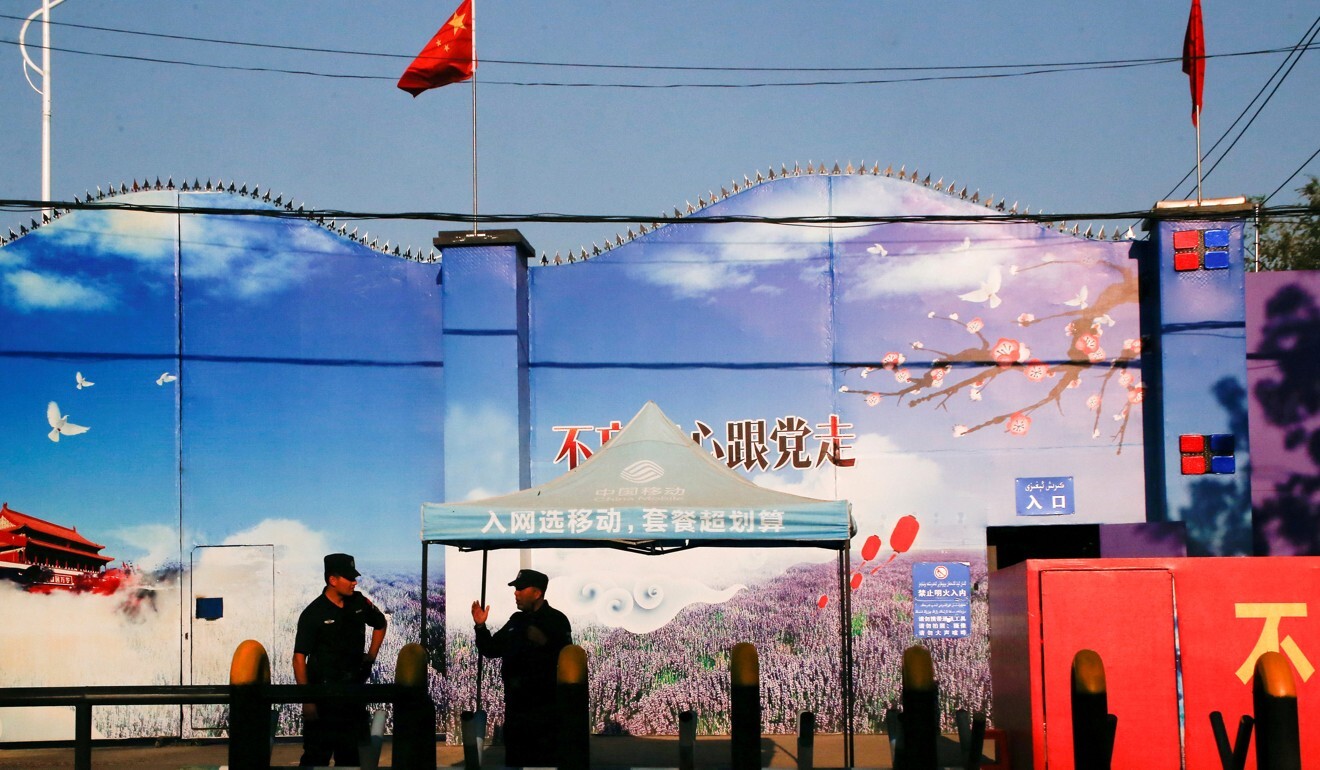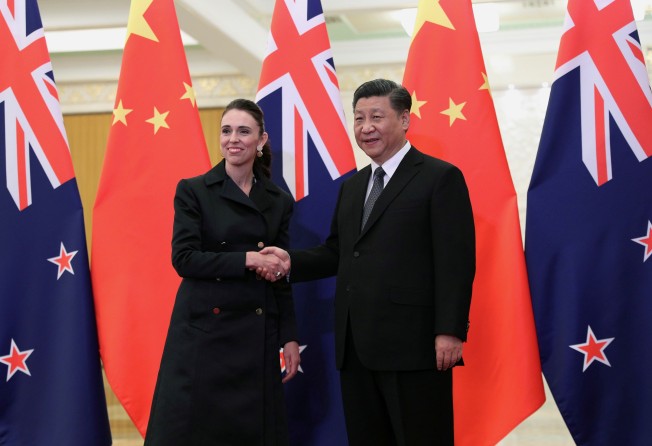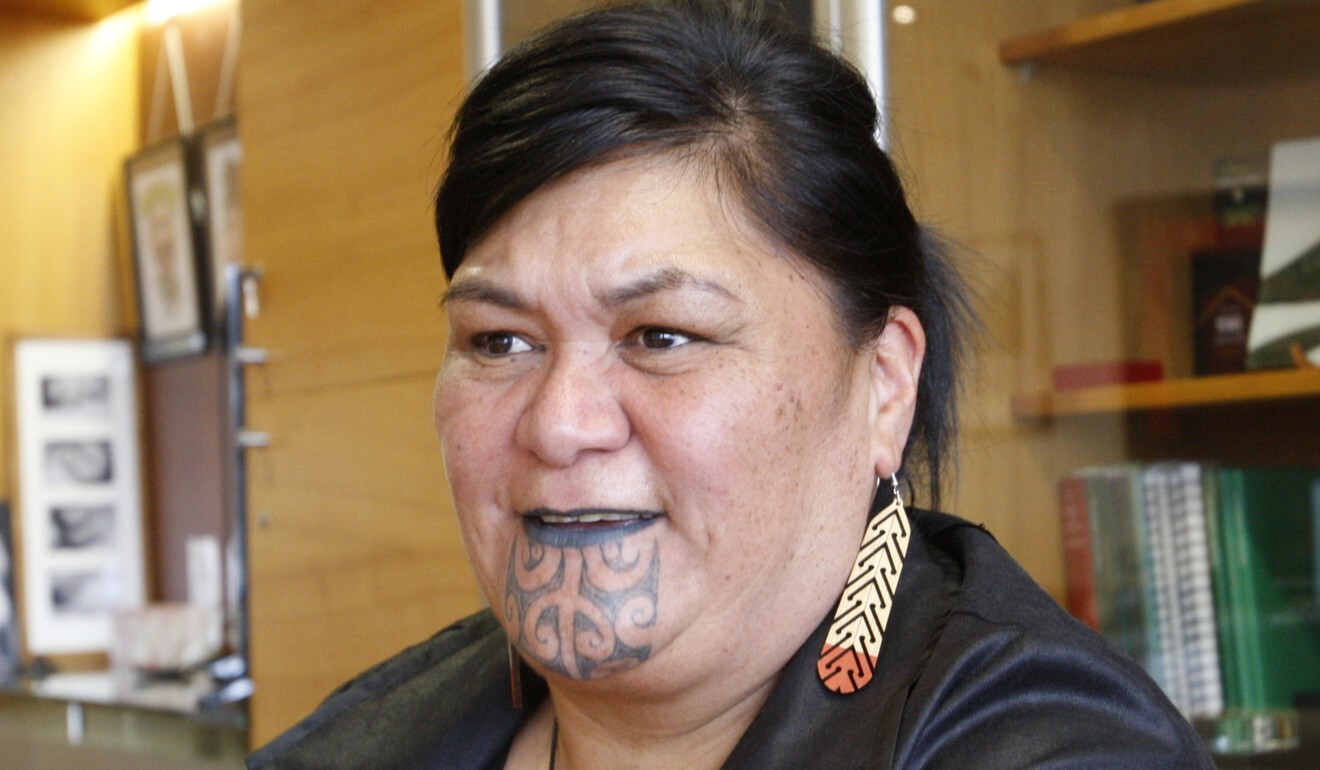
New Zealand’s bid to find middle ground between Western allies and China not lost on Beijing: experts
- Beijing condemned the New Zealand parliament’s motion about abuses in Xinjiang but the removal of the term ‘genocide’ was well-noted
- Analysts say China realises there’s a difference between Wellington’s position and the stance taken by other members of the ‘Five Eyes’ intelligence-sharing alliance

The New Zealand parliament’s unanimous declaration last week that human rights abuses were occurring in China’s Xinjiang province drew condemnation from Beijing, but the removal of the term “genocide” suggested Wellington is unwilling to jeopardise relations, analysts said.
The experts also said the attempt to find a middle ground between New Zealand’s largest trading partner and its “Five Eyes” intelligence-sharing alliance – which includes the US, Britain, Australia and Canada, who have all criticised China’s human rights record – will not be lost on Beijing.
Liu Zhiqin, a senior fellow of the Chongyang Institute for Financial Studies at the Renmin University of China, said there was a “fundamental difference” between Wellington’s position and attempts by Western countries to “interfere in Xinjiang”.

Liu said there was no need for China to be “overly nervous and over interpret” Wellington’s motion, and that New Zealand had left itself flexibility to clarify its position through further exchanges with China.
Zhiqun Zhu, international relations department chair at Bucknell University in the US, said New Zealand had been pressured by its allies to be tough on China and it would have been “politically incorrect” for Wellington to not criticise Beijing.
“However, [New Zealand’s motion] will satisfy neither its critics nor China,” said Zhu, a Chinese foreign policy expert and author of A Critical Decade: China’s Foreign Policy 2008-2018.
Zhu said the omission of the word “genocide” from the declaration likely reflected disagreement within New Zealand about the situation in Xinjiang.
According to a United Nations assessment, China has detained “upwards of 1 million” ethnic minorities, including Uygurs in Xinjiang. Lawmakers in the US and several Western nations have labelled it “genocide”. Beijing has denied this, insisting it has been fighting terrorism and providing economic opportunities to people in the westernmost province.
The parliamentary motion, which was presented by a minor party, was toned down to secure support from Prime Minister Jacinda Ardern’s Labour Party.
By the end of 2020, the value of New Zealand’s exports to China exceeded the combined value of exports to its next four largest trading partners: Australia, the US, Britain and Japan. According to its official agency Stats NZ, Chinese trade accounts for about one-third of New Zealand’s dairy exports, almost 60 per cent of forestry products and more than 40 per cent of meat.
UNLIKE AUSTRALIA
Ardern last week said differences with China were becoming “harder to reconcile” despite her continued insistence that disagreements would not define the relationship.
Observers said this balancing act will be difficult to maintain as ties between New Zealand’s closest neighbour Australia and China have declined due to a range of issues, including trade, human rights and the origin of the coronavirus.
China’s more benevolent view of New Zealand may help Wellington’s cause, analysts said.
China welcomes the fact that New Zealand does not regard itself as the dominant player in Oceania and does not seek strategic control over the region, which includes Pacific island nations, where China’s influence has expanded in recent years, analysts said.
New Zealand supports multilateralism and does not advocate exclusive cliques
He Weiwen, a senior fellow at Beijing’s Centre for China and Globalisation think tank, noted that New Zealand has no desire to participate in “the confrontation of major powers”.
“New Zealand supports multilateralism and does not advocate exclusive cliques,” He said, referring to the strategic Quadrilateral Security Dialogue, the bloc including the US, Japan, Australia and India that Beijing has accused of “driving a wedge” between nations in the region.
Wang Peng, research director at the Renmin University of China’s Centre for International Energy and Environment Strategy Studies, said New Zealand, unlike Australia, was not prone to “hegemonic considerations or anxieties”.
As the region’s largest aid donor, Australia has traditionally held “absolute superiority and control” over South Pacific countries – including Fiji, Nauru, Micronesia, Tonga, Papua New Guinea and Solomon Islands – with ties encompassing trade and security, he said.
Wang said Canberra regarded China’s expansion of its Belt and Road Initiative – a global infrastructure development strategy to promote regional growth, development and connectivity – into the South Pacific as a challenge to its influence.
According to Wang, this misconstrues Beijing’s intentions. China has not influenced political or electoral outcomes. Instead, China seeks to conduct business with South Pacific countries, some of which previously had diplomatic ties with Taiwan, he said.
China, which considers self-governing Taiwan part of its territory, has pledged billions of dollars in aid to persuade countries to suspend diplomatic recognition for Taipei in line with Beijing’s position. The last two nations to switch recognition to China were Kiribati and the Solomon Islands, in September 2019. Only four South Pacific countries – Tuvalu, Nauru, Palau and Marshall Islands – currently recognise Taiwan.
‘BETTER EYESIGHT, BETTER JUDGMENT’
New Zealand’s stance has been criticised by its Western allies but Victor Gao, vice-president of the Centre for China and Globalisation think tank, said New Zealand had “better eyesight than others and better judgment”.
Gao said New Zealand should “refuse to become pawns of hostile forces in the United States bent upon preventing China’s peaceful development”.
He, from the same think tank, also dismissed criticisms made by former British politician Nigel Farage in April that New Zealand had “betrayed the English-speaking world” and “sold its soul to China”, suggesting instead that “it is more appropriate to say that Australia has sold its soul to the US”.
He said the parliamentary motion should be differentiated from diplomatic actions undertaken by the New Zealand government. Within days of the motion being passed, New Zealand’s Foreign Minister Nanaia Mahuta said Wellington wanted a relationship with China that extends beyond trade ties and allows room for disagreement.

“The New Zealand government has handled the matter in an appropriate way,” He said, adding that Mahuta’s comments show that countries with completely different ideologies, values and social systems should seek peaceful coexistence, as reflected in the basic principles of the UN Charter.
“China and New Zealand should work hard to establish a useful example of correct handling of state-to-state relations,” He said.
Gao, also chair professor at the Soochow University, urged New Zealand to apply “reason, objectivity and fairness”, and support China’s fight against radicalisation, terrorism, extremism and separatism, referring to Beijing’s characterisation of its policies in Xinjiang.
Zhu from Bucknell University said Western accusations of genocide in Xinjiang had gained traction despite being “built upon tenuous grounds”, while Beijing’s position based on “substantive facts” was being ignored. China should therefore consider going further in defending its position on Xinjiang, instead of simply criticising perceived Western interference.
“If there is really genocide, it will be an international humanitarian issue,” Zhu said. “China should welcome foreigners to Xinjiang to see for themselves what exactly is going on.”
Additional reporting by Reuters